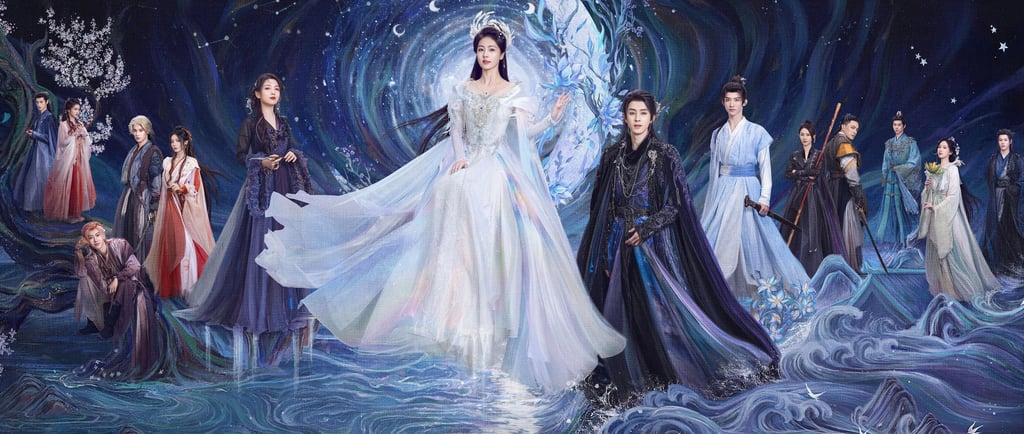MOONLIGHT MYSTIQUE
40 episodes with BAI LU and AO RUI PENG. Photo credits MySeries.tv & Kaishi Universe.
FANTASY/ COSTUME & PERIOD
10/20/20252 min read


In the vast and often formulaic landscape of Chinese xianxia dramas, Moonlight Mystique emerges not merely as a tale of gods and demons, but as a profound philosophical exploration of what it means to be human. The series transcends its fantasy trappings to deliver a resonant narrative on self-determination, the nature of love, and the complex tapestry of morality. It is a story that, while set in a realm of celestial conflict, speaks directly to the universal human journey of collecting experiences, learning from them, and ultimately, defining one’s own identity.
At the heart of the narrative is the journey of Bai Shuo, a heroine whose relatability lies in her initial flaws and simple motivations. Unlike archetypal characters chosen by destiny, Bai Shuo is driven by a personal, human-scale goal: to repay a childhood debt of gratitude. Her transformation is not a passive awakening of latent power but an active, often arduous, process of self-creation. She begins naive and stubborn, her worldview shaped by fiction, yet she consistently demonstrates resilience and resourcefulness. Her ultimate triumph is not in usurping a pre-ordained title like the Star Moon Goddess, but in forging her own identity as the Bai Shuo Deity. This arc serves as a powerful allegory for personal growth, teaching a vital lesson: our worth is not derived from fulfilling others' expectations, but from the courage to author our own legacy.
Furthermore, Moonlight Mystique redefines the conventions of romantic partnership within its genre. The relationship between Bai Shuo and the demon lord Fan Yue is a masterclass in depicting healthy love. In a genre often propelled by tragic miscommunications, their bond is refreshingly built on a "tacit understanding" and unwavering mutual trust. They consistently choose communication over conflict, presenting a partnership where both individuals stand as equals. This dynamic underscores the idea that true strength in love is found not in grand, solitary sacrifices, but in the daily, quiet commitment to face challenges together. Their love becomes a supportive force that empowers, rather than diminishes, their individual journeys.
Beyond its central characters, the series presents a world refreshingly devoid of simplistic moral binaries. There is no clear "good side"; instead, each faction—be it immortal, demon, or other—is portrayed with nuanced motivations, acting out of pride, trauma, or a flawed sense of righteousness. This narrative choice elevates the story, fostering a sense of empathy and reflecting the intricate reality of our own world. It reminds the viewer that understanding an individual’s "why" is the foundation of compassion, encouraging us to look beyond surface-level antagonism to appreciate the complex histories that shape every actor.
In conclusion, Moonlight Mystique is far more than a captivating fantasy spectacle. It is a touching and insightful essay on the human condition, beautifully woven into a narrative of magic and destiny. Through the compelling journey of Bai Shuo and her relationship with Fan Yue, the series imparts timeless lessons on the importance of self-definition, the power of communicative love, and the nuanced nature of good and evil. It stands as a poignant reminder that our collected experiences—the joys, the sorrows, the loves, and the losses—are the very essence of our power, and that it is love, in all its forms, that truly forges our destiny.
